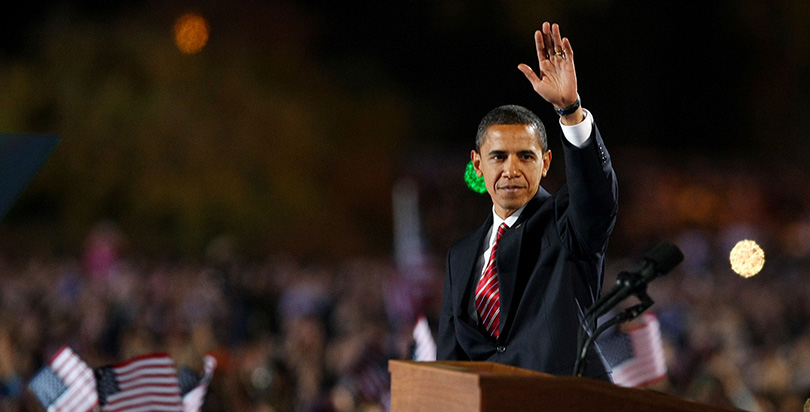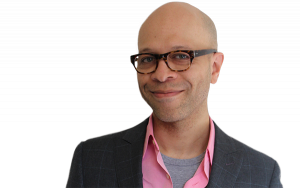Bradford: How Obama’s K-12 Schooling Drove His Education Policy — and May Also Shape His Retirement

And as he has proudly identified himself as African-American, one of the many things he will be remembered for is how he sought to transcend the rules of race in our politics, attempting to shirk the iron cloak and repressive history of the treatment of blacks in this country, instead donning the garb of a new, hopeful brand of statesmanship.
When looking back at his meteoric rise, and his current role as, essentially, the leader of black America, it’s important to remember that both are the result of a dramatic life opportunity that ultimately made Obama the man he is today — an opportunity cruelly denied millions of African-American and Hispanic children even as they aspire to walk in Obama’s footsteps. That opportunity was access to a quality education. And it’s because of Obama’s education origin story that his education policies — particularly those addressing whether minority children would have school choice and the same educational opportunities he had — will be the most resonant of his presidency.
In America’s history, there has been no president whose K-12 experience mattered more than Obama’s. Implicit in his ability to seemingly transcend race and ideology was not only his exposure to Columbia University and Harvard Law School but his attendance at the prestigious Punahou School — a private, diverse, college prep school in Honolulu, Hawaii. A school he attended on a scholarship without regard for the ZIP code in which he lived.
Hawaii’s public schools have struggled historically, with NAEP scores consistently near the bottom of national rankings. It typifies the kind of school system minority students nationally attend en masse. The sort of system where reform is hard to come by — and where hope and change, the mantra of the 2008 campaign, are often throttled.
(Peter Cunningham: President Obama’s Rich Education Legacy — and What’s Possible When You Challenge Political Allies)
Obama is one of the often lauded, hyper-educated African-American Democratic elected officials whom many thought had ushered in an era of American post-racialism. Also in these ranks: leaders like former Massachusetts governor Deval Patrick (Milton Academy and Harvard), former Tennessee congressman Harold Ford Jr. (St. Albans and UPenn) and, of course, U.S. Senator Cory Booker, the lone public school graduate among these (Northern Valley Regional in affluent Bergen County and Stanford), who has also been the most vocal supporter of school choice. Other than their shared support for President Obama, what ties them together is this: They went to schools — overwhelmingly but not exclusively private — that children who share their skin color across this country rarely do.
More clearly, they are the beneficiaries of school choice.
Managing traditional Democratic party loyalties to the education actors like teachers unions, while attempting to remain true to the fierce reality of his own existence, was a conundrum that complicated Obama’s policy agenda while in the White House. His support of charter schools, one could argue, was his attempt to acknowledge the role choice played in his own life — and the necessary role it should play in shaping the future of black political participation. Given the current state of charter opposition among many leaders in the Democratic party, some may question if this middle ground was actually the right choice.
Sadly, the Obamas, Bookers and Fords of the world remain in short supply because the channels that produce them are locked in the grip of traditional education leadership and civil rights groups, like the NAACP, who have lost their way and who now oppose charters and other forms of choice. Ironically, this misguided and shortsighted opposition has ensured that the fight for the future of quality educational access (and the production of future black leaders like Obama) will be between African Americans of one generation who found prosperity working in public education and who possess the lion’s share of the political power, and the minority students whose futures are sacrificed on the altar of the nation’s ossified urban education systems.
Either way, the lesson the Bookers, Patricks and Obamas leave us with is this: The entirety of the person must also be accepted. We must understand that, for Obama in particular, his experience was profoundly shaped by the opportunity to attend a top-flight independent school — an environment that correlates with his message and the success of many new black leaders — instead of what was almost surely an underperforming district school in Hawaii. And that, indeed, has made all the difference.
So the obvious question: As President Obama leaves office this week and considers where to put his energy next, will he return to the importance of education? Could “former President” Obama use his platform to effect the change so many of our minority students need by embracing educational opportunity, and access to quality public, private and charter schools, over the politics-as-usual of the education establishment? In using his influence, could he move the debate beyond where it is mired currently?
Yes he can. Yes, he must.
Get stories like these delivered straight to your inbox. Sign up for The 74 Newsletter

;)
